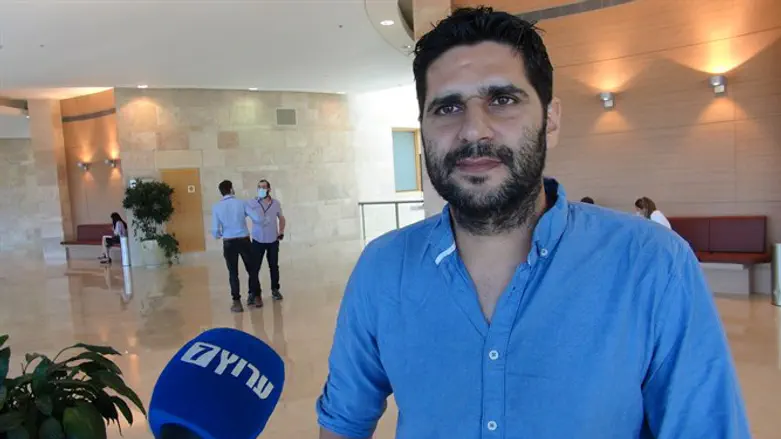
On Tuesday, members of the Knesset Finance Committee met to discuss the disaster that occurred in Meron on Lag b’Omer, when 45 people lost their lives.
As the committee met, several relatives of those who died in the disaster were waiting outside, in the Knesset lobby, hoping for a chance to address the committee – which came only after almost two hours. Among them was Shai Tzarfati, whose father Moshe lost his life.
“To this day, no one has told me exactly how my father lost his life,” Tzarfati said. “Not a single official from any state body has contacted me to tell me what happened.”
According to him, the government is a failure on an institutional level, with social workers, police, and officials at the Forensics Institute, for example, all competing for control, or, alternatively, seeking to blame others and exonerate themselves.
“I was allowed to see [the dead body of] my father for just two minutes before Shabbat began,” Tzarfati said. “The people working there are good people, but the system is dysfunctional. We saw that again today, when we, the relatives of those who died, only found out by chance that the committee was meeting to discuss what happened today. And they’ve kept us waiting for an hour and a half already.”
Also in the Knesset lobby was Yisrael Diskind, the brother of Simcha Bunim Diskind, who lost his life in Meron.
“They told us we could stand at the door [to the committee meeting] and watch, but we don’t want to watch – we want to speak,” he said. “This should never have happened. People have been warning about this for years.”
Asked what he wanted to see happen, Diskind said that the question of establishing a commission of inquiry was secondary to changing the actual facts on the ground. “The place should be nationalized,” he said. “It’s inconceivable that [private entities] should be controlling Meron. Where else in the world does such a situation exist? Is there a functioning government here, or not? This is the task of government, to make sure things are run properly, that things like this don’t happen.”
Like Tzarfati, Diskind stressed that, “We’re not looking for people to blame. Our consolation will be that things change there, completely. We only want to prevent the next disaster from occurring.”

